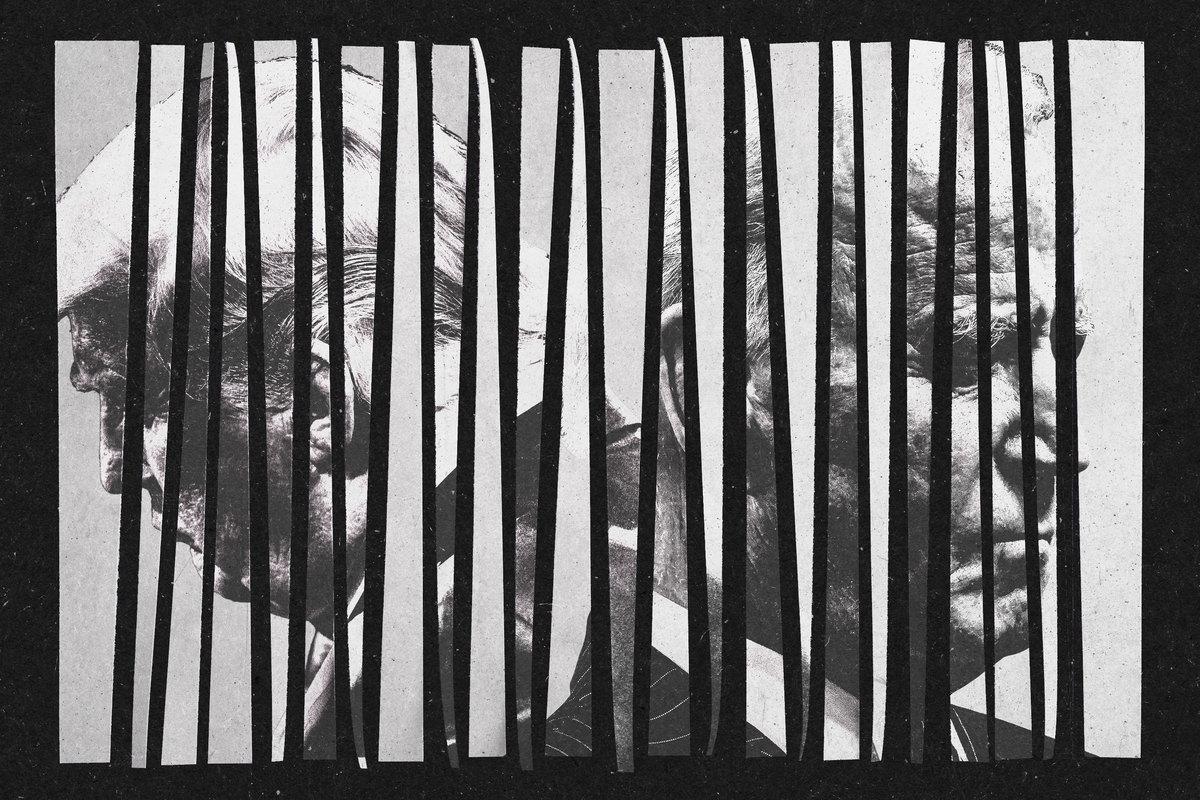
The trouble with unity is that it means something different to everyone. Last week, the new American president used “unity” and its variants and synonyms 19 times in his inaugural address, and the country responded by collapsing into disagreement over how to interpret the call to join together. It might have been funny if rioters hadn’t just stormed the Capitol, but one of the many disorientations inflicted by Donald Trump upon American political discourse is that the ridiculous is now also the apocalyptic, and vice versa. The democratic experiment didn’t end at Four Seasons Total Landscaping, but would you have been surprised, at this point, if it had? Squabbling about togetherness might sound like the premise of a bad Saturday Night Live bit from about 1987, but then, so do the past four years.
What was most American—that is, funniest and most terrifying—about the unity debate was the way every participant managed to gaze into the word and see only itself reflected back. Mirrors were taken for windows. “There’s this call for unity that the president made in his speech yesterday,” Michael Shear, the White House correspondent for The New York Times, said to President Joe Biden’s new press secretary, Jen Psaki, at a recent briefing, “but there has so far been almost no fig leaf even to the Republican Party.” He meant olive branch, but never mind: For the Times, unity is a path of sober compromise, op-eds on bipartisanship, high-thread-count sleeves reaching out across aisles. A style that looks substantial is preferable to actual substance. What good is a call for national concord if it doesn’t end with Lisa Murkowski running the Department of the Interior? At The Economist, Biden’s speech was a chance to go to the stats. “Synonyms for togetherness made up nearly 1 percent of his words, beating a record set by George Washington in 1793,” the magazine declared, over a bar graph. In your face, George Washington! This turned out to be a little misleading because Washington only used a unity synonym—“united America”—once. Washington held the record because his speech was very short.
Over on the right, many Republicans who spent the past two months trying to overturn a democratic election were shocked to discover that Biden’s pursuit of unity did not take the form of immediately enacting the full slate of Republican policies. “Two days ago, Joe Biden promised over and over again [to bring] unity, compassion,” Sean Hannity lamented on Fox News. “Tonight, his words ring more hollow than ever.” This was after Biden’s first wave of executive orders, which were broadly supported by most of the country. Hannity spent weeks lying to his millions of viewers about election fraud, but what really threatens the Founders’ vision is revoking the permit for the Keystone XL oil pipeline.
The general feeling among the disenfranchisement-curious wing of the Republican Party was a kind of high-toned disappointment that the Democrats weren’t living up to their stated ideals. How can you say you’re for unity when you’re also impeaching Trump? Texas Senator Ted Cruz expressed a version of this sorrow; so did California Representative Kevin McCarthy. Again, this would be hilarious if January 6 hadn’t happened. It pains me to say it, sir, but the only way to heal our fractured republic is to allow my armed revolutionary force to overthrow it. I do apologize, madam, but you cannot possibly overcome our sad divisions while opposing my work to ensure that only white people can vote.
And I know, I know, this is not the moment for pessimism. I should be celebrating, or if celebration is excessive when more than 400,000 Americans are dead of a virus whose spread could have been slowed, at least experiencing a sense of relief. Donald Trump is now a private citizen trying to act richer than he is, like every other septuagenarian in Florida. A great many aspects of American life will be better as a result. Still I worry. As long as it’s unsafe to open Facebook without a welding helmet, I take seriously the administration’s attempt to—in the words of Biden’s inaugural speech—lower the temperature of political discourse. More importantly, I take seriously the effort to articulate a shared purpose that might help the millions of Americans who have cut ties with reality, who have given themselves over to comic-apocalyptic conspiracy theories and emotionally satisfying lies, find their way back. They’re my fellow human beings, after all, and I’m worried for them. I’m afraid of what they might do to the rest of us.
On that point, I’m sorry, the inaugural address was a dud. I don’t know what Biden’s America means; I don’t know what its point is. United for what? A nation is more than an idea, but it’s also an idea. Biden has a checklist of mild center-left priorities, but his idea of America seems to rest, like his whole quiet candidacy, on the appeal of a return to normal. After four years with a mechanical cowboy-bar bull (but racist!) as president, I feel that appeal; at the same time, it strikes me that if liberalism wants to defeat the MAGA right’s conservative vision of a fantasy 1950, it had better muster more than the conservative vision of a fantasy 2012. If the old neoliberal narrative were sufficient to lower the temperature, my phone would not have burst into flames in the first place.
I keep thinking about unity in the context of the other two big keywords of Biden’s address, “democracy” and “truth.” Biden spoke as though these concepts were naturally allied, but they’re not, are they? Democracy is precisely a way of allowing into public life the possibility of disunity without violence. This is the tension inherent in the name “United States”: Multiple states means multiple agendas and inevitable disputes, but the process of resolving those disputes—free elections—is agreed on in advance. As for truth, God knows we could use more of it, but what does that have to do with unity? Nations that exhibit great singleness of purpose are just as likely to do so over a bad cause, or a false cause, as a true one. Maybe you’ve looked at World War I military posters? Propagandists don’t fact check.
The task for Biden, then, is to communicate a vision of this country’s purpose not via the accretive rhetoric he deployed in last week’s address—we need more democracy plus more truth plus more unity—but the much more difficult task of synthesizing unruly virtues, any one of which can run away with the others at any moment. What story does this administration have to tell that it can work toward without undermining democracy or diverging too grossly from truth? The difficulty will be greater because foundational questions of reality are at stake, and they can’t be resolved by a compromise. I can agree to tweak one policy in return for a concession on another, but that doesn’t work against a challenge as unhinged and corrosive as QAnon; I can’t win your agreement that the election was legitimate by accepting that the world is run by a secret cabal of Satan-worshipping pedophiles. If I do that, then we live in a cartoon, and nothing is real but the bullets.
But all that said, is it really so difficult to imagine a story about America that’s truer, more forward-looking, and more broadly charismatic than social-media conspiracy theories? The Democrats’ narrative has for a long time been suspended between the airily vague (“hope”) and a kind of timid procedural reasonableness designed to appease Fox News. (Strangely, it has not done so.) Something more compelling and clearer and less tentative is needed if the Biden administration is going to be more than a reprieve between nightmares. I mean needed, of course, in addition to the work of devising policy and national strategy, which have to be picked up and dried off after a long spell of slopping in the wake of Trump’s ego. Politics is more than messaging, but don’t discount the importance of a good story. Last week, while the inauguration and the impeachment and the shouting about unity were crowding the spotlight, two key employees at Fox News were pushed out under two different corporate euphemisms (one was laid off under a “realignment,” one retired at age 62). They had worked to protect the accuracy of the network’s 2020 election coverage. You’ll recall that Fox called Arizona for Biden, correctly, before any other network, complicating the fringe-right stolen-election narrative from the beginning. What happens next time? I said before that unity and truth are in tension more often than they’re aligned; I hope Biden’s speechwriters have a clear understanding of whom that tension benefits. I would rather they worry too early than too late.

